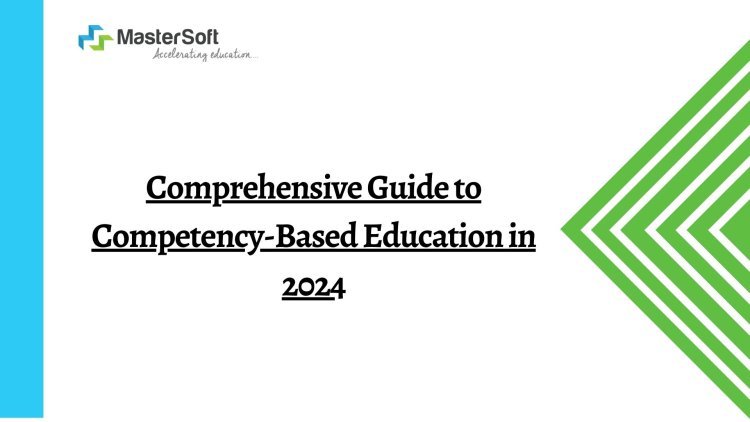Unleashing Potential: A Journey Through Competency-Based Education
In the dynamic realm of education, traditional methods of teaching and learning are being challenged by innovative approaches that prioritize individualized growth and mastery. One such approach that is

gaining traction is Competency-Based Education (CBE), a student-centric model that focuses on developing specific skills and knowledge rather than simply completing coursework. Join us as we embark on a journey through the transformative landscape of CBE and explore its potential to unlock the full potential of learners.
Understanding Competency-Based Education:
Competency-Based Education (CBE) is an approach to teaching and learning that centers around clearly defined learning outcomes, or competencies. These competencies are the foundation of the curriculum and represent the essential skills, knowledge, and abilities that students are expected to master. Unlike traditional education models that rely on seat time and credit hours, CBE allows students to progress at their own pace, advancing upon mastery of each competency.
Key Principles of Competency-Based Education:
Mastery-Based Learning:
At the heart of CBE is the concept of mastery-based learning, where students are empowered to demonstrate their understanding of a competency before moving on to the next level. This approach ensures that students have a deep understanding of the material and are able to apply their knowledge in real-world contexts.
Personalized Pathways:
CBE recognizes that every student learns differently and, as such, offers personalized pathways to learning. Students have the flexibility to choose the pace, place, and path of their education, allowing them to tailor their learning experience to their individual needs and interests.
Authentic Assessment:
Assessment in CBE is focused on measuring students' mastery of specific competencies through authentic, real-world tasks and projects. This approach to assessment provides students with opportunities to apply their knowledge and skills in meaningful ways, preparing them for success in the workforce and beyond.
Continuous Feedback and Support:
CBE emphasizes the importance of providing students with continuous feedback and support throughout their learning journey. Educators serve as mentors and coaches, offering guidance and encouragement to help students reach their full potential. Additionally, technology tools and resources can be leveraged to provide personalized feedback and support.
Implementing Competency-Based Education:
Successfully implementing Competency-Based Education requires a collaborative effort among educators, administrators, students, and parents. Key steps in implementing CBE include:
Curriculum Design:
Designing a competency-based curriculum involves identifying the essential competencies that students need to master and developing a progression of learning experiences to support their attainment. Curriculum design should be flexible, allowing for customization and adaptation to meet the needs of diverse learners.
Professional Development:
Educators play a crucial role in the success of CBE and must receive ongoing professional development to effectively implement this approach. Training should focus on understanding the principles of CBE, designing competency-based assessments, and providing personalized support to students.
Student Engagement:
Engaging students in the learning process is essential for the success of CBE. Educators should create opportunities for active learning, collaboration, and reflection, fostering a sense of ownership and agency among students.
Continuous Improvement:
Continuous improvement is integral to the success of CBE initiatives. Educators and administrators should regularly assess the effectiveness of their implementation efforts, gather feedback from students and stakeholders, and make data-driven adjustments to improve outcomes.
Conclusion:
Competency-Based Education offers a promising alternative to traditional education models, providing students with the opportunity to develop essential skills and knowledge in a personalized and meaningful way. By embracing the principles of CBE and fostering a culture of continuous improvement, educators can empower students to reach their full potential and succeed in an ever-changing world.
What's Your Reaction?










![Wireless Connectivity Software Market Size, Share | Statistics [2032]](https://handyclassified.com/uploads/images/202404/image_100x75_661f3be896033.jpg)



